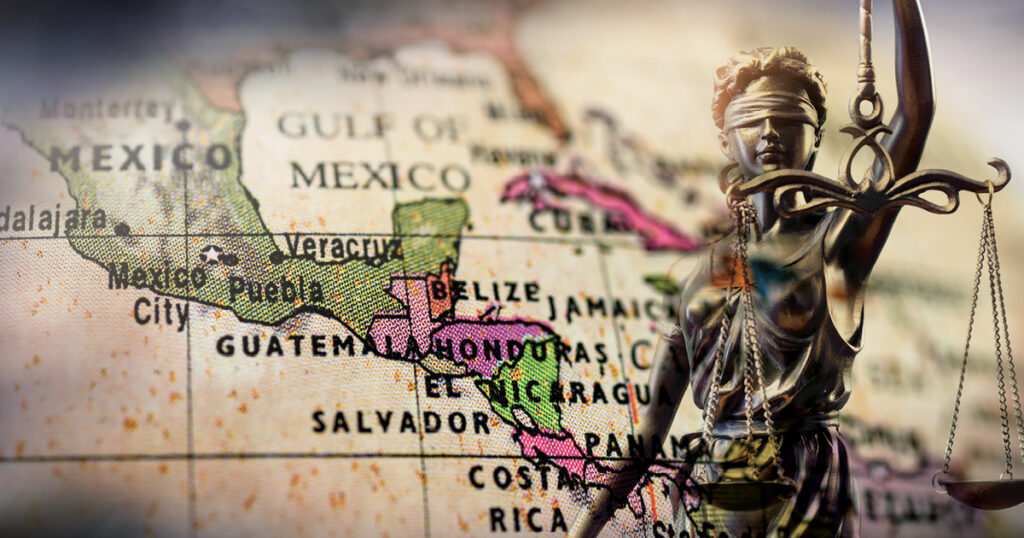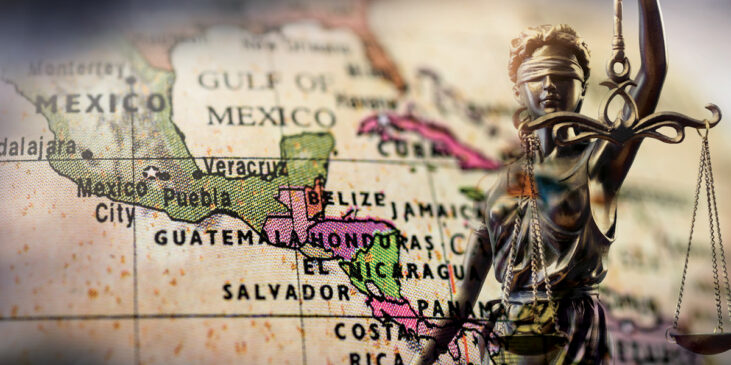
G* came to America from El Salvador at age 16 to escape violence and poverty in his home country. In recent years, thousands of Latin American children have made the same journey to the United States seeking safety. Some have relatives here, but many arrive in an unfamiliar country, alone, speaking limited or no English, and without someone to help navigate complex border restrictions and immigration law.
G made the dangerous trip through Central America to the United States without family members to support or guide him. G has an aunt in Queens who was a potential guardian, but legal proceedings arising from his border crossing and appointing her his guardian were complex and expensive. Summoned to immigration court, G and his aunt were panicked.
“There was so much fear there,” G says. When they appeared in court, the judge granted them more time to find a lawyer, and it happened that Gui Stampur, then the Deputy Executive Director of the Safe Passage Project, was present. The Safe Passage Project, founded by Professor Lenni Benson, began as a clinic at New York Law School (NYLS) and grew to become a nonprofit immigration legal services organization that provides free legal representation to immigrant youth, like G. Stampur offered to review G’s case.
Word spread within NYLS that attorney volunteers were needed, and faculty member Frank Munger, now John Marshall Harlan II Professor of Law, Emeritus, and his wife Karen Sherman, an experienced New York attorney and principal of her own law firm, offered their help to assist G. Professor Munger recalls, “We were ready to help fill the need for lawyers for children who are fleeing terrible conditions at home and are simply seeking a better life. The Safe Passage Project provides a valuable service by matching attorneys willing to help with children in need.”
The Project invited G and his aunt to NYLS’s campus to meet with their legal team. “When I first met Frank and Karen, they said: ‘We’re going to help you. We’re going to do whatever we can. We’re committed to this cause.’”
Over the following year, the team successfully negotiated G’s legal status through state and federal proceedings, gaining legal status for G, but even more important a sense of safety. As a legal resident, G still faced an uphill journey overcoming further challenges: supporting himself, managing school, and seeking a successful future. Fortunately, G and his team were just getting started.
“It felt like they became my godparents. It’s not like they just did whatever they needed to do as lawyers and that was the end of it. They also committed to my advancement. I told them that I wanted to go to college, but that I didn’t have an idea how. I didn’t even know how to apply. They said: ‘No worries. We’re going to help you.’”
Professor Munger says that his wife, Karen, has been G’s chief sounding board and advisor, and the three of them have met on numerous occasions to celebrate his work permit, green card, and graduation but also to discuss his progress and options after graduation.
G graduated college magna cum laude with a challenging double major in human biology and economics. He says, “It’s so hard when kids come to the States in the same situation as I did, because at the end of the day, you’re still a kid.”
Professor Munger marvels at G’s perseverance. “G has overcome incredible hurdles for a teenager entering an unfamiliar educational system, speaking a second language. He balanced college and a job, maintaining an excellent record as a student contributing to his aunt’s and his own support. He is also seeking options for a professional career.”
G knows he might have ended up on another path: A recent New York Times article described young immigrants from Latin America who have fewer alternatives and take dangerous jobs in agriculture or manufacturing. “That easily could have been me,” he says. “And maybe the only thing that made the difference was that I was at the right place at the right time. I’m a reflection of that organization [Safe Passage Project], and everything that I have accomplished has been because I have that network that I can go to whenever I need to.”
In the latest chapter of his story, G, assisted by a referral from Professor Munger and his wife, was offered an internship at the Federal Reserve Bank of New York. “To think that when I first came to the States, I would be at such an institution—it’s been incredible. I was thinking about how this kid who was no one and was afraid and didn’t have enough direction ended up here. I remember when I was at the border. I remember everything I went through. That was a wake-up moment.”
Life in America is far from perfect, but G is resilient, and through the efforts of the NYLS Safe Passage Project, Professor Munger, and Karen Sherman, he is on the road to success. “You feel like you had been swimming a long, long time and you didn’t see the end of it,” he says. “But I don’t regret it. This is my dream. And it’s a way of telling Frank and Karen thank you.”
“It’s been almost a decade now, and they’re not just lawyers. They’re family.”
*G’s full name has been omitted to preserve anonymity.
About the Safe Passage Project
The Safe Passage Project, founded by Distinguished Chair in Immigration and Human Rights Law Professor Lenni B. Benson, is a nonprofit immigration legal services organization providing free lawyers to refugee and immigrant children in the New York City-area who face deportation back to life-threatening situations, despite their strong legal claim to stay in the United States.

